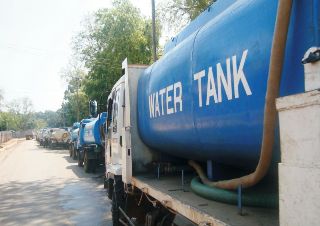Clean water shortage hits GPAA villages
MAY 2, 2015 (PIBOR) – Hundreds of civilians in Pibor villages of South Sudan’s Jonglei state lack access to clean drinking water after seasonal rivers in the area dried up.

Speaking to Sudan Tribune last week, the chief of Lokichar Boma, Nyapirilem Thomojong, expressed the urgent need for installing more water pumps in these villages to rescue the local area population.
“In this part of Gumuruk, we largely depend on seasonal river water for consumption between June to December each year. This water has a smell, looks dirty, and has a lot of insects running in it. We just drink it with fear”, he said.
“Between January and May each year, this river dries up and people start to move to fetch water from far villages,” added the chief.
According to the chief, the water pumps were drilled in the villages by an unknown humanitarian agency, but they quickly dried up.
“We don’t know whether these pumps were broken or dried up because of shallowness, they had not been getting water from them since the first week they were put to use”, said the chief.
Lack of water in Gumuruk makes it difficult for learning in schools.
The chief says citizens’ main priorities at the moment are food, drinking water, health services, education and roads, among others.
The semi-autonomous GPAA came into effect after president Salva Kiir signed into law a peace accord recognising its formation following a peace agreement reached with South Sudan Democratic Front Cobra Faction, then headed by David Yau Yau.
Yau Yau was later appointed the chief administrator of the GPAA.
(ST)
